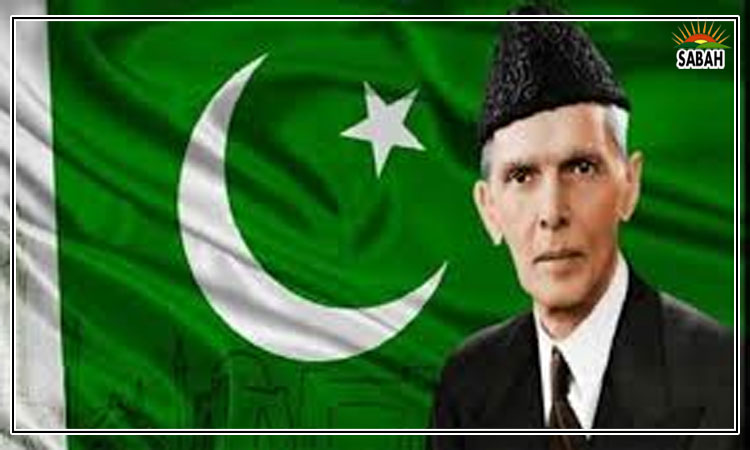Pakistan among top importers of second-hand textiles needs green practices to ensure sustainability, circularity: Speakers
ISLAMABAD, July 31 (SABAH): The speakers at a seminar on circularity and trade of used textiles said the country was among the top importers of second-hand textiles mostly exported by the European Union, needed green measures to ensure sustainability and circularity as refurbishment of such goods burdened local water and energy resources.
The Sustainable Development Policy Institute in collaboration with the European Union (EU) and UNEP organised the hybrid Seminar on “Circularity and Used Textiles Trade in Pakistan: Policy and Practice for Sustainable Development” here.
In his opening remarks, Asad Naqvi, Head Economic and Trade Policy Unit, UNEP said, “59% of exports of Pakistan are textile-based and 40% workforce is associated with this sector. The second-hand textile is important for poor masses and the small and medium enterprises (SMEs) and value chains that are around it.
It is a perfect osmosis in which three pillars of sustainable development interact creating harmony among resource efficiency and environment, social economic side, and poverty. The textile sector will grow globally, and Pakistan can grab a significant share which can be possible through public finance or private financing in the textile sector.”
Dr Abid Suleri, Executive Director, SDPI in his welcome remarks said the SDPI is effectively working on a circular economy and contributing greatly to the formation of effective policies. “Importing, sorting and resale of imported textiles is promoting a local industry and employing many people at home. Second-hand textiles are being refurbished and sold in the posh markets of Islamabad, and this program will contribute greatly towards the green economy,” he added.
He said the textile import sector is an oligopolistic (few large producers having control over an entire market ) market structure, with outdated technology and a lack of access to finance. However, the government, Federal Board of Revenue (FBR), and SDPI are effectively working to document such informal sectors into the economy, he added.
Since second-hand clothes are being imported, it is contributing significantly towards the circularity with an added expense to it in the form of energy and the water that is being used to refurbish such textiles, he added.
Jeroen Willems, Head of Cooperation, EU Delegation to Pakistan said used textiles are effectively being exported to Pakistan, Ghana, & Tunisia by Europe and the demand of second-hand textiles will double globally. “Pakistan is among the top importers of such second-hand textiles. In the EU, there is a notion of ‘fast fashion’ in which on average people discard a shirt after using it 7 times. Resulting in a huge waste of many resources such as energy, water, and chemicals,” he added.
Willhams informed that some 12.6 million tons of textile waste in the EU is produced every year, new waste framework directives are being prepared by the EU such as (Extended Producer Responsibility schemes). “EU is developing rules regarding effective sorting of clothes that are to be reused or recycled. EU is committed to (Climate Neutral Now) Initiative that encourages and supports organizations to act now to achieve a climate-neutral world by 2050 and to reduce net gas emissions to 55% by 2030,” he said.
Samira Sheikh, Joint Secretary at National Security Division said textile circularity has great significance to Pakistan, the world is changing around us and the climate crisis is making the industry rethink traditional modes of consumption and production.
She added that the pressure is laid by the EU that targets to make the region climate neutral by 2050. “Pakistan exports 68% of its textiles to the EU. The circularity can extend the life cycle of the product in situations of crises and limitations in resources and create various job opportunities for the community in a sustainable and environmentally friendly manner,” she said.
Beatriz Fernandaz: Program Management Officer UNEP said textile industries contribute to 2-8% of the world’s greenhouse gas emissions, whereas the sector effectively drive trade, industrialization, development, and social value. Many SMEs are associated with the textile sector contributing greatly to countries economy, whereas it is estimated that the textile industry was valued at $1.6 trillion in 2023 that will reach up to $3.3 trillion by 2030.
Zainab Naeem, Associate Research Fellow, SDPI said the global second-hand clothing market is vast, with significant exports from high-income countries to low and middle-income countries. In 2021, around 2.1 million tonnes of post-consumer clothing were called in EU for recycling or rescale in the global market, she said, adding, “Some 17% increase in growth and volume and a 66% increase in the market value of second-hand imported textile products have been observed in Pakistan, whereas there are no guidelines to distinguish textile waste from second-hand textiles being exported to developing countries.”
Sheikh Iqbal, CEO of Pakistan Textiles Council said circularity and isolation are integral to addressing carbon and human rights issues as part of the Green Deal. Pakistan’s poor tax policies have severely impacted the textile industry, causing many to shift from industrial activities to cultivating agricultural commodities like cotton.
The government should regulate and enforce carbon production and water consumption in the textile industry, offering incentives to encourage positive behaviour. For instance, in Bangladesh, textile companies complying with regulations pay a 10 percent tax, whereas non-compliant companies pay 12 percent.
Noreen Akhtar from All Pakistan Textile Mills Association said banning textile production will significantly impact Pakistan’s export economy, especially under pressure from the EU. The country lacks the necessary policy and infrastructure support for proper textile waste disposal. However, the textile circularity presents a substantial opportunity for home-based women and entrepreneurs with limited resources, offering good returns.
Dr Yasir (NTU) said the local textile industry in Pakistan produces post-industrial waste, which is effectively managed by converting them into recycled fibres which are then mixed in with the new fiber in specific ratios to make end products more affordable, thus driving down prices. In Karachi alone, 800 million tons of textile waste, valued at 350 million USD, is sorted, recycled, and then exported, resulting in significant value addition. Additionally, around 2,000 recyclers in Pakistan are actively working to manage locally produced textile waste, he added.
Umer Farooq- GIZ said Pakistan is an effective player in resource circularity, recycling industries based in Faisalabad are upgrading the equipment to get efficient end products in the form of raw materials meeting the industrial standards.











